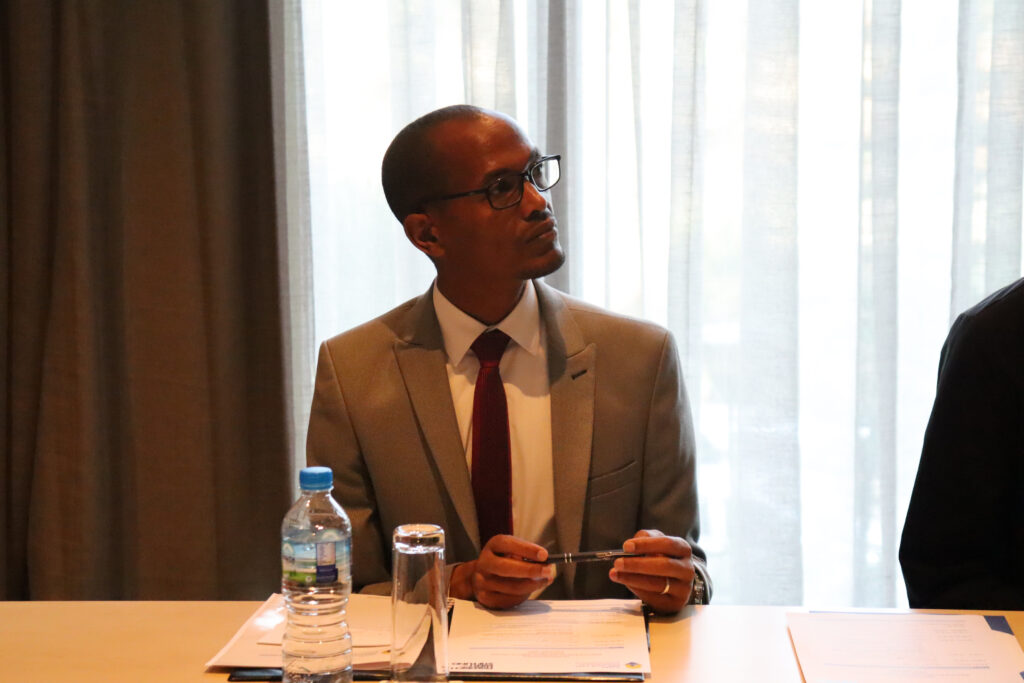The Ethiopian Human Rights Commission (EHRC) in collaboration with the Friedrich Ebert Stiftung (FES) conducted a Ministerial Briefing on Business and Human Rights (BHR) on December 5, 2023, in Addis Ababa, Ethiopia. The briefing brought together representatives from the relevant ministries, the House of Peoples’ Representatives, the United Nations Development Programme (UNDP) and the African Union (AU).
The briefing served as a continuation of EHRC’s ongoing consultation process aimed at initiating a National Baseline Assessment (NBA) as a foundational step towards formulating a comprehensive National Action Plans (NAP) on BHR. The NBA will provide crucial data and insights to inform the development of the NAP, ensuring its effectiveness and relevance to the Ethiopian context.
The briefing entailed in-depth deliberations on various of BHR including comprehensive discussions on the United Nations Guiding Principles on BHR (UNGPs), the draft policy on BHR proposed by the African Union, as well as Ethiopia’s current status and prevailing situation concerning BHR.

In his opening remarks, the EHRC Commissioner for Civil, Political, and Socio-economic Rights, Dr. Abdi Jibril, underscored Ethiopia’s international obligation to facilitate the realization of human rights, encompassing business operations. Dr. Abdi highlighted the dual nature of businesses, acknowledging their potential for both positive and negative impacts on human rights. On the positive side, Dr. Abdi recognized businesses’ contributions to realizing human rights, citing their role in providing employment, access to food, housing, health, information, and education. However, he also acknowledged the potential for businesses to abuse human rights, including through evictions, environmental degradation, community health impacts, and labor rights violations. These contrasting possibilities necessitate a balanced approach to BHR.
Dr. Abdi further noted Ethiopia’s commitment to developing a national action plan for implementing the UN Guiding Principles on Business and Human Rights. This commitment aligns with the recommendation made during the 3rd cycle of the Universal Periodic Review (UPR) in May 2019, demonstrating Ethiopia’s international engagement in promoting responsible business practices that respect human rights.
The Ministerial Briefing concluded by calling for Ethiopia to initiate a National Baseline Assessment (NBA) to adopt a National Action Plans on Business and Human Rights (NAP-BHR). Ministry of Justice officials emphasized the participatory and inclusive nature of the process, highlighting Ethiopia’s intention to report on this progress during the upcoming 4th Universal Periodic Review (UPR) cycle.
